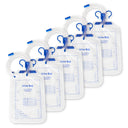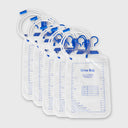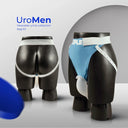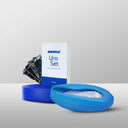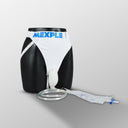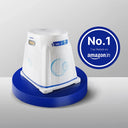What are Urine Catheters?
Urine catheters are thin, flexible tubes used to drain urine from the bladder when an individual is unable to urinate naturally. Commonly used in medical settings or home care, they help manage urinary retention, incontinence, or during recovery from surgeries involving the lower body. Catheters may be temporary or long-term, depending on the patient’s condition. They are essential for individuals with mobility challenges, neurological disorders, prostate enlargement, or post-operative needs. Available in various types—such as indwelling (Foley), intermittent, and external—urine catheters provide a hygienic and efficient way to maintain urinary health and prevent complications.
Why Choose Our Urine Catheters?
Mexple’s urine catheters are designed with user safety, comfort, and hygiene in mind. Made from medical-grade, skin-friendly materials, they ensure minimal irritation and maximum comfort during use. Our catheters feature smooth edges, secure connections, and are available in multiple types to suit various medical needs. Whether for short-term or long-term use, Mexple catheters provide reliable, sterile urinary management you can trust.
Types of Urine Catheters at Mexple
Foley Catheters
Foley catheters are indwelling catheters inserted into the bladder for continuous urine drainage. Ideal for long-term use, they feature a balloon that holds the catheter in place and are commonly used in hospitals or for bedridden patients requiring round-the-clock urinary management.
External (Condom) Catheters
Designed for male patients, external or condom catheters fit over the penis like a sheath and connect to a drainage bag. They are non-invasive, reduce the risk of infection, and are suitable for users with incontinence who do not require internal catheterization.
Intermittent Catheters
Intermittent catheters are temporary-use devices inserted several times a day to empty the bladder and then removed. They offer greater independence and are ideal for individuals with spinal cord injuries or bladder dysfunction who want to manage their condition without an indwelling catheter.
FAQs Related to Urine Catheters
Are urine catheters safe to use long-term?
Yes, urine catheters can be safe for long-term use when properly managed under medical supervision. Regular cleaning, timely replacement, and the use of high-quality, medical-grade catheters—like those from Mexple—help reduce the risk of infections, skin irritation, and other complications. Always follow your healthcare provider’s guidance for long-term catheter care.
How often should a catheter be changed?
The frequency of catheter changes depends on the type of catheter and individual medical needs. For example, Foley catheters are typically changed every 2 to 4 weeks, while intermittent catheters are used once and then discarded. Always follow your doctor’s recommendations and product guidelines for safe, hygienic use.
Can I insert a catheter at home by myself?
Yes, certain types of catheters—like intermittent or external (condom) catheters—can be safely inserted at home with proper guidance. However, it's important to receive training from a healthcare professional first to avoid infection, discomfort, or injury. Always maintain hygiene and follow usage instructions carefully for safe self-catheterization.


